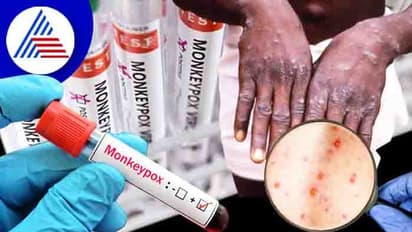Mpox outbreak in Africa is public health emergency, declares WHO (WATCH)

Synopsis
The World Health Organization (WHO) on Wednesday declared the ongoing mpox outbreak in Africa a “public health emergency of international concern."
The World Health Organization (WHO) on Wednesday declared the ongoing mpox outbreak in Africa a “public health emergency of international concern,” a status previously designated for critical global health threats such as Ebola, Covid-19, and the 2022 mpox surge in Europe.
The outbreak, which bears unsettling similarities to the early stages of the HIV epidemic, has alarmed global health experts due to its rapid spread, particularly in the Democratic Republic of the Congo (DRC) and surrounding regions.
Since January 2022, Africa has reported 38,465 cases of mpox and 1,456 deaths, with over 14,000 cases and 524 fatalities in the DRC alone in 2024.
The surge has been linked to multiple virus clades, including clades I and II, and a newly identified variant, clade Ib. This variant, an offshoot of clade I, appears to be driving the outbreak in the DRC and neighboring countries, with children being particularly vulnerable.
The WHO’s Director-General, Tedros Adhanom Ghebreyesus, described the situation as “very worrying” and underscored the critical need for an urgent, coordinated global response. He emphasized that the emergence of clade Ib, particularly in the eastern DRC and its detection in neighboring countries, warrants the “highest level of alarm under international health law.”
In response to the declaration, the WHO has released $1.5 million from its contingency fund, with plans to mobilize an additional $15 million to support efforts in the affected regions. However, experts have warned that much more is needed to combat the outbreak effectively.
Trudie Lang, a professor of global health research at Oxford University, compared the current mpox outbreak to the early days of HIV, particularly due to its transmission through sexual networks. She highlighted the high risk faced by “vulnerable, young, exploited sex workers” and stressed the importance of public health campaigns to reduce stigma and encourage people to seek treatment.
Lang also expressed concerns about the significant gaps in understanding the virus’s transmission, particularly the potential for mild, undetected cases to contribute to its spread. “What I’m truly worried about is the amount of cases that are not severe. If people have got a more mild infection that is potentially hidden, especially if it’s a sexually transmitted genital infection, they can be walking around with it,” she said.
She added that while the virus might be quickly contained in Europe or the US through vaccination, the situation in impoverished regions of Africa is far more precarious.
Dr. Ayoade Alakija, chair of the Africa Vaccine Delivery Alliance and of the diagnostics non-profit organization Find, criticized the global response to the outbreak, noting that if it were occurring in Europe, mpox would have already been deemed a major international health emergency. She called for the declaration to serve as a catalyst for increased funding and resources.
“There is an urgent need for more in-depth investigation to better understand mpox transmission dynamics to guide controls and response plans, as well as enhanced surveillance and equitable access to vaccines, diagnostics, and treatments for all affected populations,” said Alakija. She pointed out that most vaccines and treatments have been pre-ordered by wealthy countries, leaving Africa with limited resources to fight the outbreak.
The Africa Centres for Disease Control and Prevention (Africa CDC) had already declared mpox a public health emergency earlier in the week. Dr. Jean Kaseya, director-general of Africa CDC, stated that the declaration was “not merely a formality” but “a clarion call to action.” He urged for proactive and aggressive measures to contain and eliminate the virus.
In response, the African Union has allocated $10.4 million to support Africa CDC’s efforts, although Dr. Kaseya suggested that the continent might need as much as $4 billion to effectively combat the outbreak.
Dr. Boghuma Titanji, an assistant professor of medicine at Emory University, expressed hope that the WHO’s declaration would prompt African governments to allocate the necessary funds to fight the outbreak, emphasizing the need for a robust, well-funded response.
Check the Breaking News Today and Latest News from across India and around the world. Stay updated with the latest World News and global developments from politics to economy and current affairs. Get in-depth coverage of China News, Europe News, Pakistan News, and South Asia News, along with top headlines from the UK and US. Follow expert analysis, international trends, and breaking updates from around the globe. Download the Asianet News Official App from the Android Play Store and iPhone App Store for accurate and timely news updates anytime, anywhere.